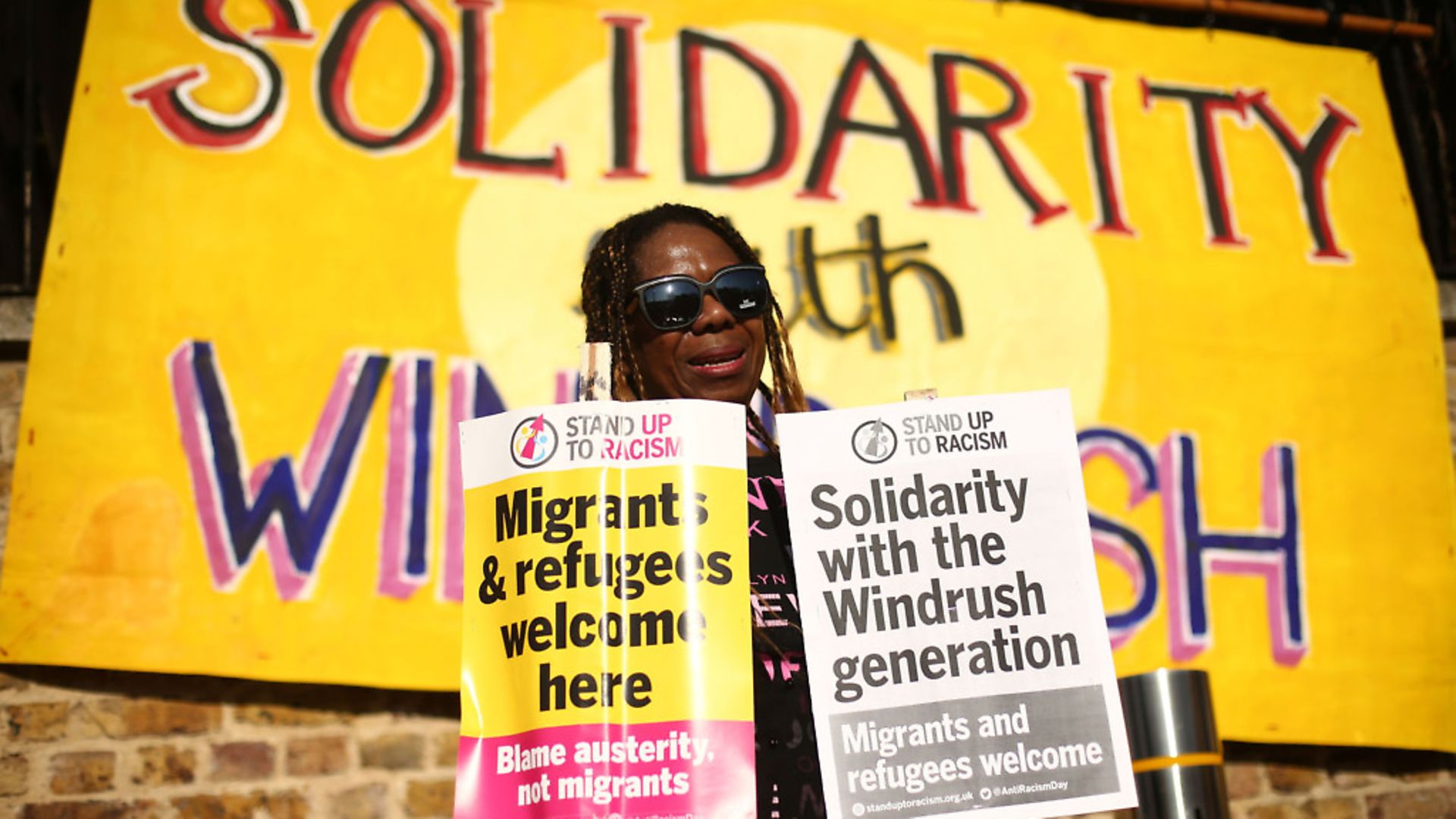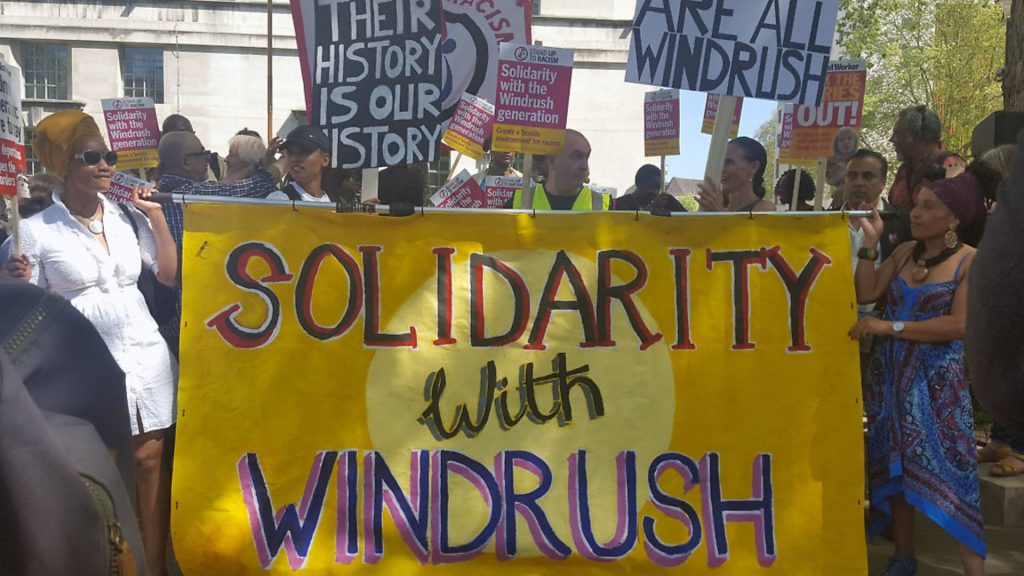
The Tory government’s hostile policies are hitting the Black, Asian and minority ethnic communities hard. As LUNA WILLIAMS explains, Brexit is exacerbating the issue.

This May, the UN sent a Special Rapporteur to the UK. Her job was to examine the presence of racism, racial discrimination, xenophobia and other related forms of intolerance across the UK’s sectors, communities and structures. To do this, she spoke with representatives across political, private and public spheres — from politicians, to human rights councils to community groups.
A report released by the UN Human Rights Council explored her findings; many of which directly link to British hostile immigration policies and the social and economic implications of Brexit.
The hostile environment was a policy first introduced by Theresa May while she was home secretary. The motto of this policy – which has since been abolished – was to make the UK so unwelcoming and uncomfortable for ‘illegal’ immigrants that they would eventually leave voluntarily.
As part of the policy, landlords, employers and health-care providers were encouraged to refuse their services to those they deemed as ‘illegal immigrants’, a practice which encouraged racial profiling, and the mass-discrimination of both British-born and migrant BAME individuals and their families.
After last summer’s Windrush scandal, which saw hundreds of Windrush-generation British citizens (many of whom had been living and working in the UK their entire lives) threatened and deported by the Home Office, the hostile environment policy was officially denounced.
Despite this, various examples of racial and religious discrimination and inequality are present across most areas of the UK – from education, to healthcare, to public life – and much of this is down to continued hostile policies and attitudes.
Equally, Brexit has also exacerbated racial inequalities and discrimination, as well as xenophobia. In the days which followed the referendum result the number of hate crimes in England and Wales spiked. Between 2016 and 2017, racially and religiously-motivated hate crimes increased by 29%. They continued to increase by a further 17% between 2017 and 2018, marking an upward trend.
As well as this, austerity measures have also hit the BAME community the hardest, resulting in inequalities for BAME children, young people, families and women in particular. The cost of Brexit also shares some of the blame for this.
BAME children
According to a Race Disparity Audit which was carried out by the government in 2016, black, Asian and ‘minority-ethnic’ households are twice as likely to live in persistent poverty than white households. When the audit took place, one in four Asian and black children were likely to be in persistent poverty, compared to one in ten white British children. Children from black and Pakistani or Bangladeshi households were more likely to live in poor accommodation: 24.2% of black households, and 28.6% of Pakistani and Bangladeshi households lived in housing which was categorised as ‘sub-standard’. By comparison, 18.6% of white households lived in sub-standard accommodation during the same time period.
The UN’s report highlights the issue of racial inequality in schools as especially dire, describing how “race and ethnicity continue to have a significant impact on educational outcomes”. According to its findings, Afro-Caribbean children are almost three times more likely to be excluded from their school permanently than white British children. In some examples, schools have also refused to appeal decisions where black and ethnic-minority students have been wrongly excluded.
There has also been a rise in racially-motivated bulling in schools, with BAME refugees in particular being targeted.
BAME women
It is not just children and young people who have been impacted by racial inequality in the UK; BAME women have also been disproportionately affected.
The Women’s Budget Group (WBG) has raised concerns that Brexit is set to harm women, particularly BAME women, in multiple ways. One way which is particularly important, is in the public service sector. As it stands, the projected deficit caused by Brexit is between £20 billion and £40 billion. According to data from the Institute for Fiscal Studies (IFS), public spending will need to be cut by up to £48 billion to compensate for this.
A spokesperson from the UN recently stated that “austerity hits women harder” than men and, it is BAME women who are hit the hardest by it. Since the referendum result, local spending has been slashed by just under a third in the majority of public services. This has led to the closure of several smaller women’s support groups and community projects. This is something which has impacted the lives of BAME women more so than white British women, as it is the smaller groups which cater for BAME-specific needs and issues. According to the WBG, 75% of England’s local authorities have had to cut their spending on women’s services – like refuges, community support networks and domestic abuse shelters — to account for budget cuts.
The UN’s Special Rapporteur also reported cases of pregnant asylum-seeking and refugee women, who didn’t want to visit UK hospitals during their pregnancy or birth, in case they or their children would be reported to Home Office officials. Unfortunately, this fear is not unfounded. According to evidence uncovered by women’s rights campaigners Southall Black Sisters and Liberty last December, almost every police force in England and Wales reported migrant and asylum-seeking women who had come forward to report their abusive partner or family member. A high percentage of these women were BAME women – who are statistically more likely to stay quieter for longer when in an abusive relationship (1.5 times longer than white, British women according to SafeLives). Many account this to a fear that they will lose their refugee status, or have their UK Marriage Visa revoked if they choose to speak out.
Despite the fact that the UK government commissioned the Race Disparity Audit in 2016, and has had the results for nearly three years, nothing seems to have been implemented. The government has the facts, now it needs to act to ensure that effective equality measures are put into place; whether this be cross-sector dialogues, programmes, community funding or policy changes. Ultimately, much more needs to be done to prevent inequality and discrimination in the UK, particularly with Brexit on the horizon.
– This article has been written by Luna Williams, political correspondent at the Immigration Advice Service. IAS is an organisation of UK immigration solicitors, which assists private and corporate clients, and also offers legal aid services to asylum-seekers and vulnerable individuals.








